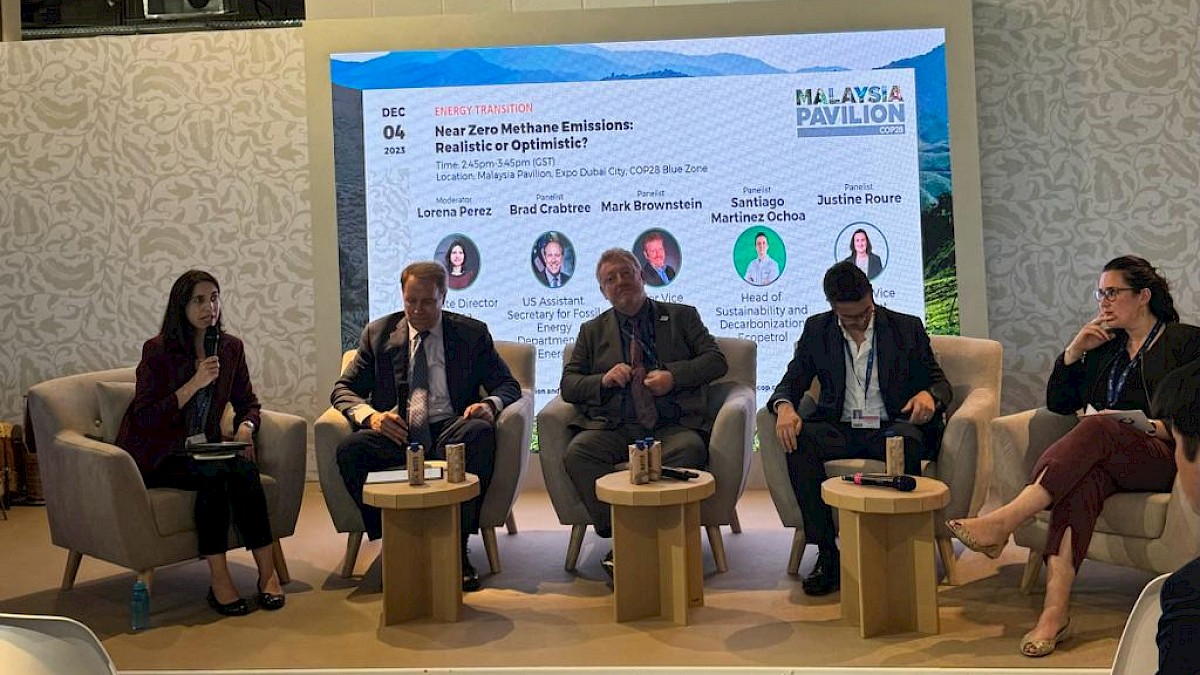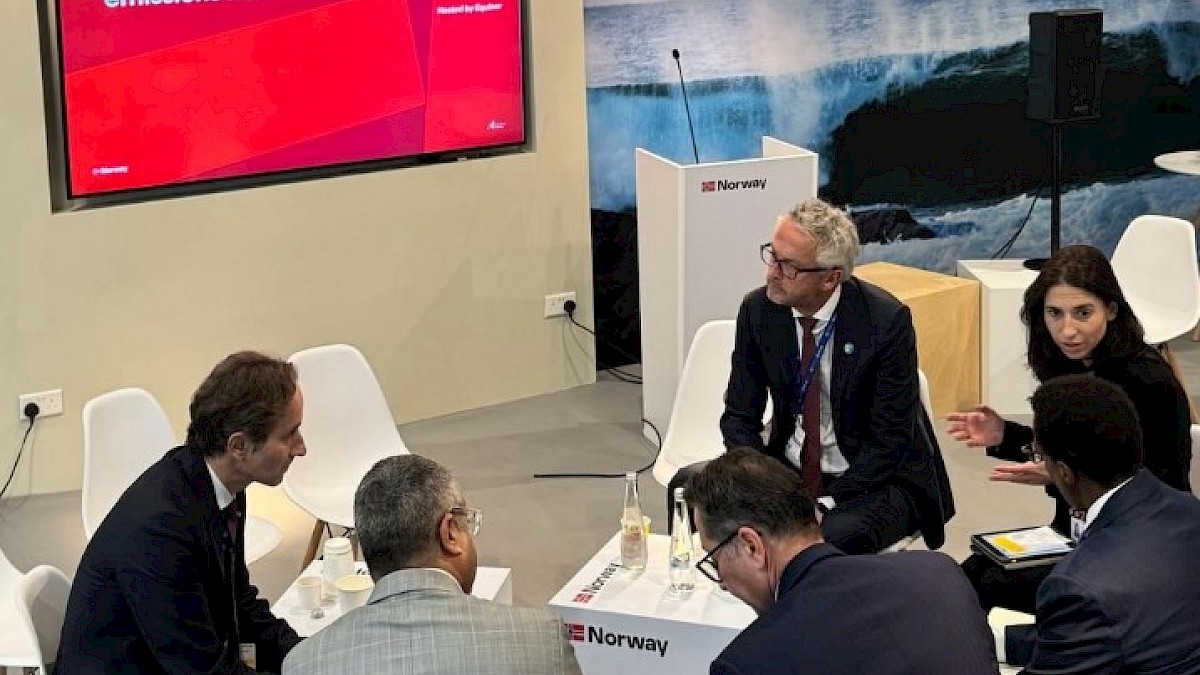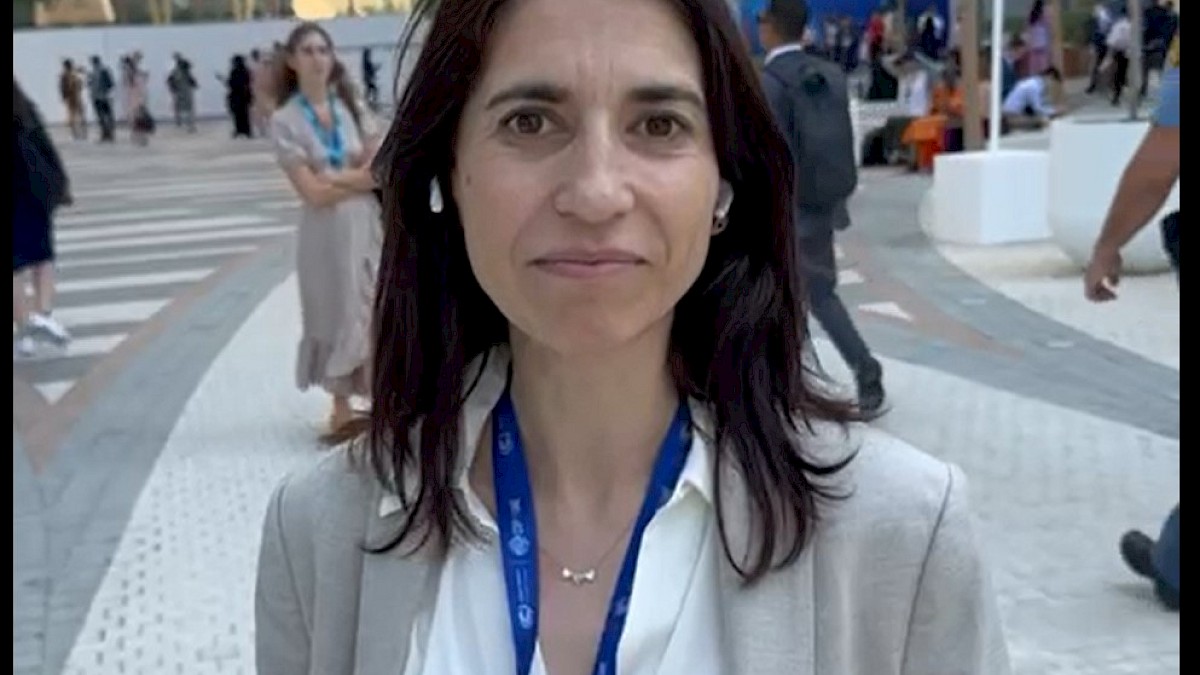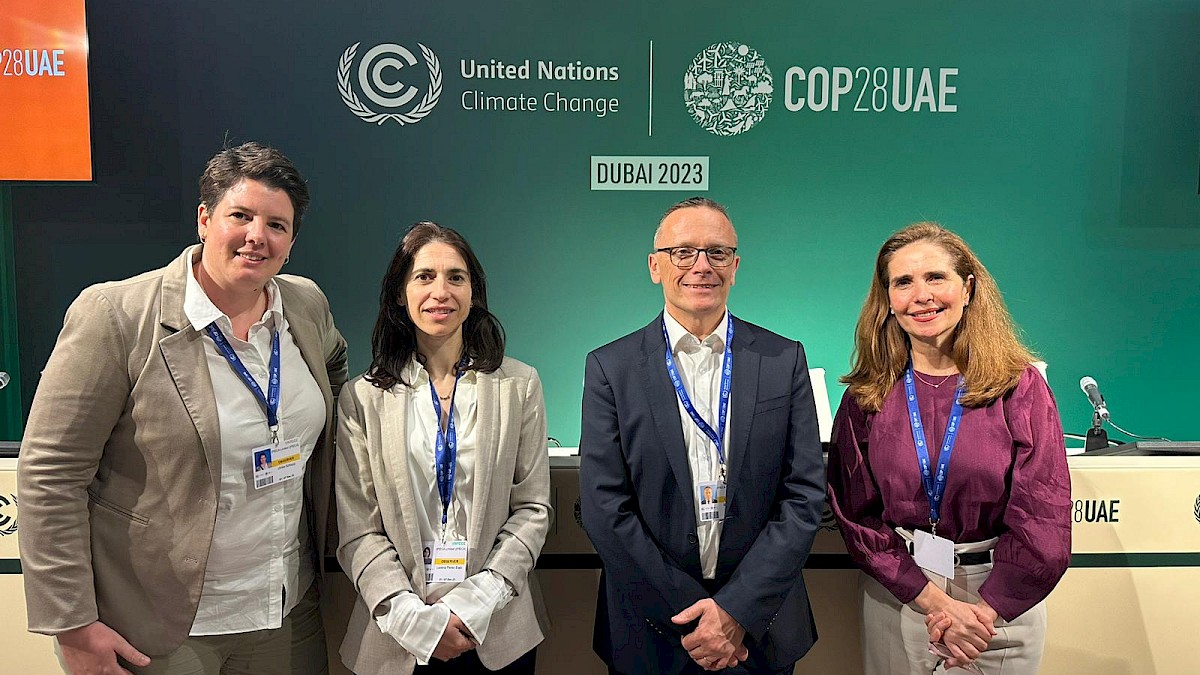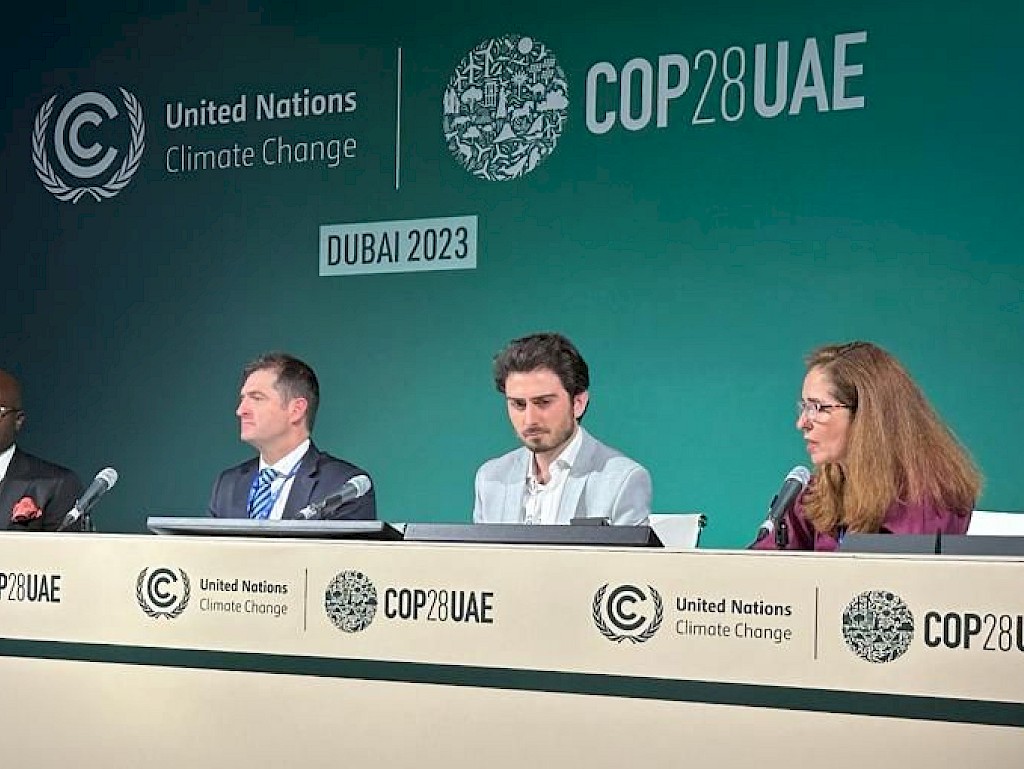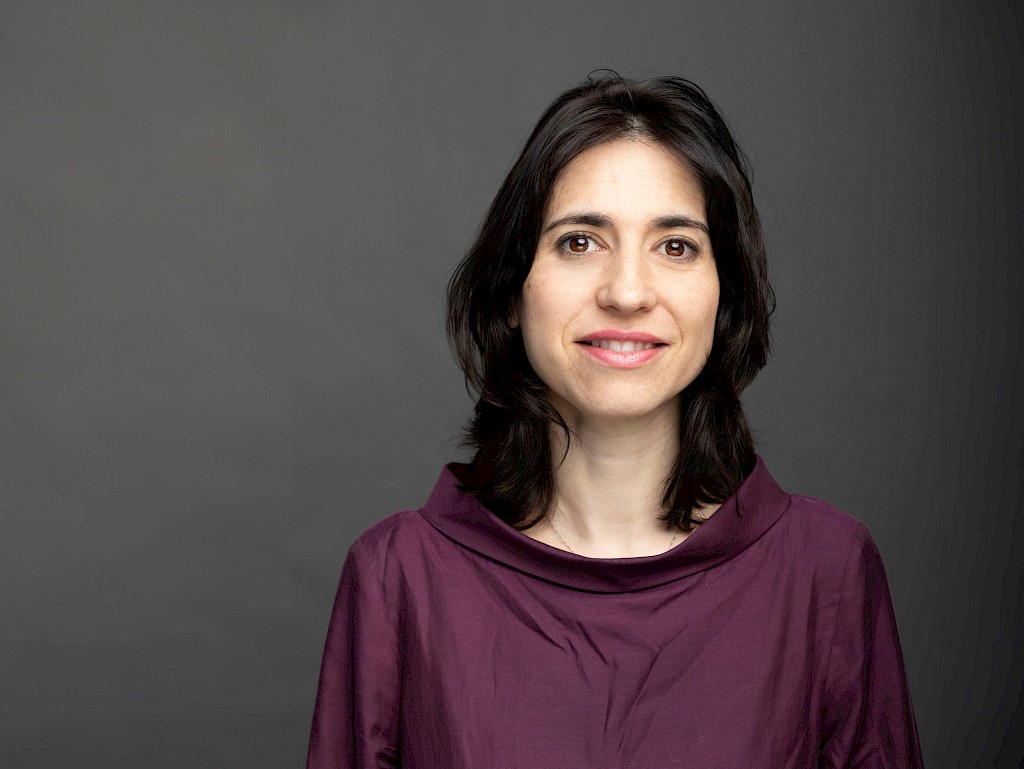I came back from COP28 exhausted but also energised by having taken part in such a positive, inclusive COP that landed a historic agreement in the UAE Consensus. I’m pretty sure this feeling of optimism (and exhaustion!) is shared by lots of other COP28 returnees.
I think it’s fair to say that the UAE Consensus is historic. It’s the first COP agreement to mention a transition away from all fossil fuels - in a just, orderly and equitable manner - and also the first one to set a net-zero emissions 2050 deadline, and most importantly keeps 1.5 degrees within reach.
The UAE Consensus also encourages parties to submit economy-wide Nationally Determined Contributions (NDCs) and includes targets to triple renewables and double energy efficiency by 2030.
Many of the issues and technologies mentioned by the text overlap with Ipieca’s area of work such as supporting companies to reduce their CO2 and methane emissions, guiding them on their net-zero journeys, providing practical advice on energy efficiency practices and technologies, supporting a just transition and developing guidance on how to sustainably scale up renewable energy technologies.
Ipieca’s role in turning ambition into action
While the UAE Consensus is rightly celebrated, agreements are only good as their implementation. The COP28 Presidency has delivered some really important public-private initiatives that provide a framework for government, business and finance to work together to deliver on the agreement.
Excitingly, Ipieca will play a key part in one of the flagship initiatives announced by the COP28 Presidency: the Global Decarbonisation Accelerator – a series of landmark energy initiatives to speed up the energy transition.
The Oil and Gas Decarbonisation Charter has been signed by 50 companies (19 of which are Ipieca members) so far, representing over 40 per cent of global oil production (with the majority of signatories national oil companies), committing to near-zero upstream methane emissions and ending routine flaring by 2030, and to total net-zero operations by 2050. With Ipieca membership representing over 50% of hydrocarbon production and the extensive industry reach our members provide, we will work to expand signatories, promote adoption of guidance, standard and frameworks, and provide the technical guidance needed to achieve the commitments.
The Industrial Transition Accelerator (ITA) will accelerate decarbonisation across sectors including the oil and gas industry and users of its products in heavy industry, transport and energy sectors. It aims to encourage policymakers, technical experts, industry and financial backers to work with industries to rapidly deliver emissions reduction. Industry associations will represent each sector.
The power of multilateralism
Without a doubt this was the most inclusive COP I have attended. The feeling in the Blue Zone was very positive about the involvement of all actors and the important role business can play in bringing technical know-how and solutions to turn climate ambitions into on the ground action.
Looking ahead to Baku and COP29
Each COP is part of a larger ongoing process, with one COP Presidency handing over the baton to the next. An important issue to be picked up in Baku will be the finalisation of an international carbon trading mechanism (generally referred to as Article 6 of the Paris Agreement).
I am also looking forward to the COP29 Presidency continuing to enable holistic climate and nature action. COP27 put nature on the agenda, with COP28 carrying this on with the UNFCCC COP28 Presidency, the UN’s parallel COP on Biodiversity (CBD COP15) Presidency and several countries and chairs/leads of various partnerships and initiatives issuing a joint statement on the need to implement nature and climate strategies together. During COP28 a series of initiatives – with an initial commitment of USD 1.7 bn – to simultaneously meet climate and biodiversity goals was launched.
Nature is one of Ipieca’s four strategic pillars (in addition to climate, people and sustainability), so we are uniquely placed to drive a holistic industry approach to climate and nature. Ipieca attended UN CBD COP15 and provided industry technical inputs to the Global Biodiversity Framework, which we are now supporting the industry to operationalise.
In the understandable excitement around the UAE Consensus, one thing that seems to have got a bit lost is the result of the first ever Global Stocktake, which concluded at COP28. This showed us that while progress on slowing down global warming has been made, going into COP28 projected global warming was in the range of 2.1 to 2.8 degrees. As we head towards the next COP, the world needs to make use of the UAE Consensus to develop stronger climate plans and deliver on the ground actions to keep 1.5 degrees alive.
Ipieca will play a key part in one of the flagship initiatives announced by the COP28 Presidency: the Global Decarbonisation Accelerator – a series of landmark energy initiatives to speed up the energy transition.
